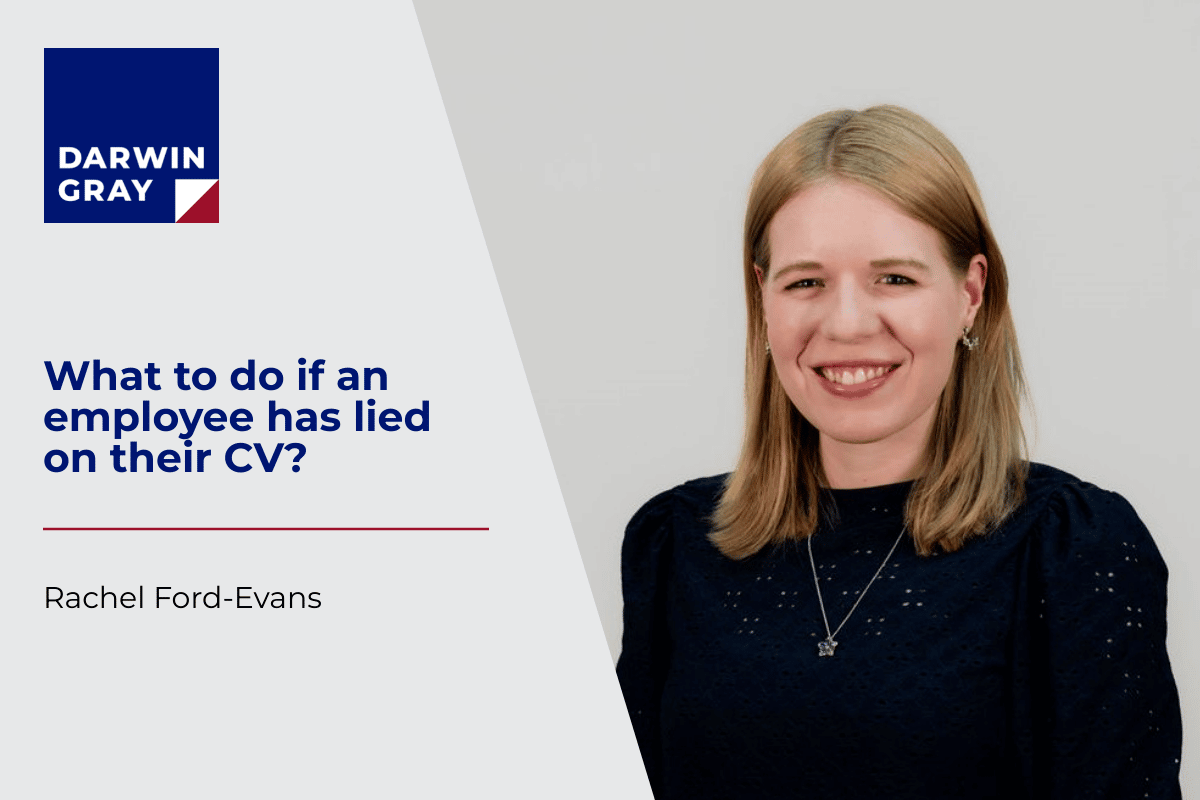September 7, 2022
By Rachel Ford-Evans
In a recent Supreme Court decision, a CEO was found to have lied on his CV over a decade earlier and was forced to make a repayment to his employer. Our employment law team outlines what you should do if you think an employee has lied on their CV.
In the recent Supreme Court case of R v Andrewes, a CEO of a company (Mr Andrewes) was caught out and prosecuted after he lied on his CV over a decade earlier. On his CV, Mr Andrewes had falsely stated that he had gained a first-class degree from Bristol University, had obtained an MBA from Edinburgh University, and a PhD in Management and Accounting. Andrewes also lied about his work experience, making a number of roles up so that he could meet the essential requirements advertised for the CEO role. Andrewes was successful in getting the CEO position in 2004, and remained in the role until March 2015 when he was dismissed.
The matter was then referred to the police, and Andrewes was sentenced to 2 years’ imprisonment for lying on his CV. The Supreme Court recently required Andrewes to repay £97,000 to the employer, on the basis that that’s all he could afford (the employer had hoped for a repayment of £643,000 – which was the total salary that Andrewes had earned in the CEO role).
What can we learn from the case? Here are a few tips from us if you think an employee has lied on their CV:
-
Don’t jump to conclusions
Investigate first. Wrongly accusing an employee of falsifying their CV could potentially be a serious matter and put you at legal risk as the employer. So, take your time to investigate properly.
-
Check qualifications
Although it may seem obvious, it’s worth you carrying out extra due diligence on any candidate hoping to get a job. We’d encourage you to carefully inspect any qualifications, particularly if you have listed those specific qualifications as an essential requirement of the job being advertised. You can do this by using various specialist screening companies or even approaching the relevant educational institutions directly.
-
Check work experiences
Employment references are the best way of doing this but make sure you approach the right person at the relevant organisation for the reference – e.g. usually the Head of HR. If you’re still unsure of things, don’t be afraid to go back further in time and obtain further employment references.
-
Take action
Once you’ve investigated and come to a conclusion, remember that lying on a CV can be a criminal offence (which you can refer to the police) as well as a potential gross misconduct dismissal matter. However, if you have firm evidence of someone lying on their CV, don’t delay; act immediately. Also, it’s worth bearing in mind that you wouldn’t necessarily need to wait for the police to conclude their investigations before you could follow through with any action of your own. Remember that the police are looking for something different (criminal behaviour) to what you’re looking for (a potential disciplinary / breach of contract issue).
If you need any help or advice on any of the above, please contact Rachel Ford-Evans on rford-evans@darwingray.com / 02920 829 120 for a free initial chat to see how we can help you.











